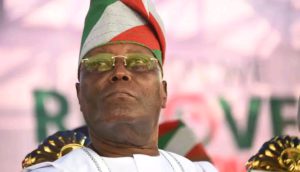“Voting is a Right, Not a Crime”: Yiaga Africa Condemns Proposed Compulsory Voting Bill in Nigeria

By Faisal A Harande
Abuja, Nigeria – Leading civic society organization Yiaga Africa has strongly condemned a proposed bill in Nigeria’s National Assembly that seeks to make voting compulsory and impose a six-month jail term for citizens who abstain from elections. The organization argues that such a law would be “draconian” and a “gross violation of constitutionally guaranteed fundamental rights.”
In a statement released on May 16, 2025, Yiaga Africa, while acknowledging the bill’s plausible aim to address Nigeria’s alarmingly low voter turnout, firmly rejected the “strong-arm approach.” The group emphasized that “the right to abstain from voting is itself a legitimate form of political expression protected under domestic and international human rights law.”
The proposed legislation comes as Nigeria grapples with a consistent decline in electoral participation. Voter turnout plummeted to a historic low of 27.1% in the 2023 general elections. This figure positions Nigeria, Africa’s most populous nation, as the continent’s largest democracy with the lowest voter engagement. Yiaga Africa’s statement highlighted the fluctuating history of turnout: 34.6% (1979), 38.9% (1983), 35% (1993), a surge to 52.3% (1999) and a peak of 69.1% (2003), followed by a steady decline – 57.5% (2007), 53.7% (2011), 43.7% (2015), and 34.7% (2019).
“Democracy thrives on freedom, which includes the choice to participate or abstain from voting,” the statement, signed by Executive Director Samson Itodo, asserted. “Compulsory voting undermines this democratic freedom and the punitive sanctions for not voting erodes the foundational principles of voluntary democratic engagement.”
Yiaga Africa contends that the bill fails to tackle the root causes of voter apathy, such as widespread distrust in the electoral process, concerns about election manipulation, and perceptions of poor governance. Instead of criminalizing non-participation, the organization urges the National Assembly to prioritize comprehensive electoral reforms. These reforms, they suggest, should focus on rebuilding public trust, enhancing election integrity, and removing systemic barriers to participation.
Specific recommendations include:
- Mandatory electronic transmission of results.
- A review of the appointment process for officials of the Independent National Electoral Commission (INEC).
- Implementation of early voting mechanisms.
- Provision for diaspora voting.
- Improved transparency in the overall management of elections.
“Voter apathy isn’t addressed with imposing punishment for not voting,” Yiaga Africa concluded. “It can be addressed through trust, electoral justice, and accountability.” The organization called on lawmakers to reject the proposed bill and redirect legislative efforts towards amendments that expand voting access, guarantee electoral transparency, and protect the political rights of all Nigerians.
About Yiaga Africa and Samson Itodo:
Yiaga Africa is a non-profit civic hub dedicated to promoting democratic governance, human rights, and civic participation. Under the leadership of Samson Itodo, a respected constitutional lawyer and development practitioner, the organization has become a prominent voice in election observation, governance advocacy, and youth engagement across Africa. Itodo is renowned for his work on electoral reform and his role in movements like #NotTooYoungToRun, which successfully advocated for reducing age limits for political office in Nigeria. Yiaga Africa’s “Watching The Vote” initiative is a comprehensive election observation methodology that has contributed significantly to the transparency of elections in Nigeria.
The Broader Context of Compulsory Voting:
The debate around compulsory voting is not unique to Nigeria. Proponents often argue it can increase civic engagement, ensure election results are more representative, and encourage citizens to become more informed. However, critics, like Yiaga Africa, raise concerns about individual liberties, the potential for uninformed voting, and the failure to address underlying reasons for political disengagement. Several countries, including Australia and Belgium, have forms of compulsory voting, though enforcement and penalties vary widely. The proposed Nigerian bill’s punitive measure of a jail term is considered particularly severe by its detractors.
This development highlights the ongoing challenges Nigeria faces in strengthening its democratic institutions and ensuring robust citizen participation in its electoral processes. The National Assembly’s handling of this bill and its broader approach to electoral reform will be closely watched by citizens and civil society organizations.






